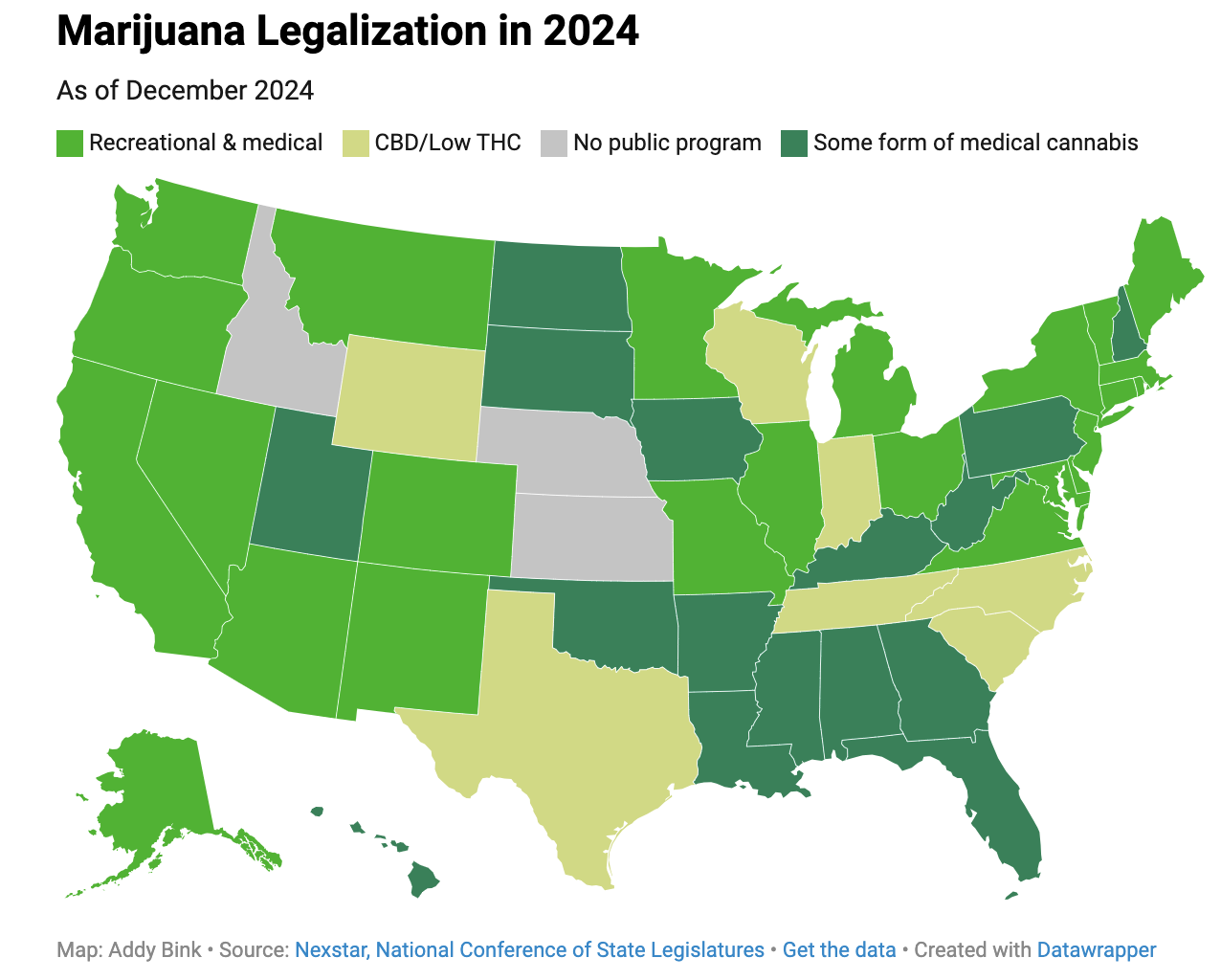Marijuana Legalization in the United States: A Look at 2023 and Beyond
The landscape of marijuana legalization in the United States witnessed a relatively subdued year in 2023, with only Ohio making significant strides in recreational cannabis legislation. While several states attempted to advance marijuana legalization, the efforts were met with mixed results. This article provides an overview of the state of marijuana laws in 2023, with a focus on Ohio and other states' endeavors.
Ohio's Recreational Marijuana Legalization:
In a landmark move, Ohio became the sole state to legalize recreational marijuana in 2023. In November, voters approved a citizen-initiated statute permitting Ohioans aged 21 and older to possess up to 2.5 ounces of cannabis and up to 15 grams of cannabis extract. Additionally, residents can cultivate up to six cannabis plants individually or up to 12 if there are two adults, each at least 21 years old, in the household. This development makes Ohio the 24th state to legalize recreational marijuana, joining the ranks of other progressive states.
Medical Marijuana Progress in Kentucky:
While Ohio made strides in recreational legalization, Kentucky focused on medical marijuana. The Kentucky General Assembly successfully legalized medical cannabis in 2023. However, patients will have to wait until 2025 for the program to officially launch, marking a significant step forward in the state's cannabis policies.
Missed Opportunities and Setbacks:
Despite various states attempting to advance marijuana legislation, Oklahoma voters rejected the legalization of recreational marijuana in March. Similarly, a proposal to legalize marijuana in Indiana failed in early April, highlighting the challenges faced by proponents of marijuana legalization in certain regions.
Marijuana Legalization Outlook for 2024:
According to the National Conference of State Legislatures, Idaho, Nebraska, and Kansas currently lack any public marijuana programs. Conversely, states marked in dark green on the map above have implemented some form of medical cannabis program. Notably, Florida may see a proposed constitutional amendment regarding marijuana legalization on its ballots in 2024, with thousands of supporters backing the initiative. Additionally, Wisconsin Republicans plan to introduce a proposal to legalize medical marijuana in the state, potentially putting it to a vote in 2024.
Federal Developments and Public Opinion:
Earlier in the year, the Department of Health and Human Services recommended reclassifying marijuana as a Schedule III drug to the Drug Enforcement Administration. This classification signifies a "moderate to low potential for physical and psychological dependence." However, even if reclassified, marijuana would remain a controlled substance subject to federal regulations, and recreational use would not be immediately legalized on the federal level.
While a Gallup survey published in November indicates growing public support for marijuana legalization, with a record seven in 10 respondents expressing approval, the road to widespread acceptance and implementation remains complex. Rescheduling marijuana could pave the way for increased research opportunities, but it does not automatically decriminalize the substance.
Conclusion:
As the marijuana legalization landscape evolves, the experiences of Ohio and Kentucky in 2023 offer insights into the diverse approaches taken by states. With public opinion leaning toward acceptance, the coming years may see more states navigating the complexities of marijuana legislation, both at the state and federal levels. However, the nuanced nature of marijuana laws underscores the importance of staying informed about the latest developments in this ever-changing legal landscape.

